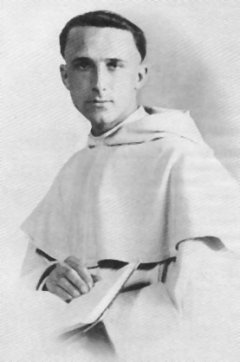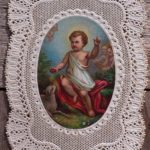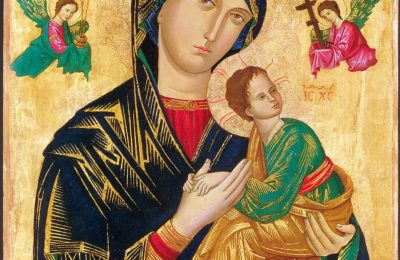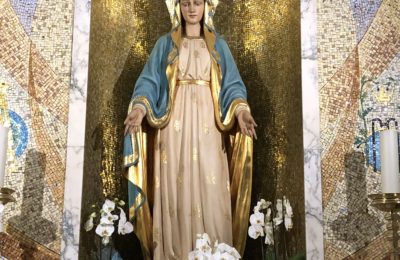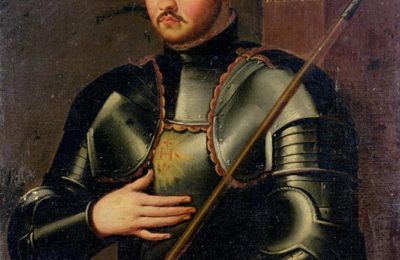Deathbed conversion, however difficult, is still possible. Even when we see no sign of contrition, we can still not affirm that, at the last moment, just before the separation of soul from body, the soul is definitively obstinate. A sinner may be converted at that last-minute in such fashion that God alone can know it. The holy Cure of Ars, Divinely enlightened, said to a weeping widow: “Your prayer, Madame, has been heard. Your husband is saved. When he threw himself into the Rhone, the Blessed Virgin obtained for him the grace of conversion just before he died. Recall how, a month before, in your garden, he plucked the most beautiful rose and said to you, ‘Carry this to the altar of the Blessed Virgin.’ She has not forgotten.”
Other souls, too, have been converted in extremis, souls that could barely recall a few religious acts in the course of their life. A sailor, for example, preserved the practice of uncovering his head when he passed before a church. He did not know even the Our Father or the Hail Mary, but the lifting of his hat kept him from departing definitively from God.
In the life of the saintly Bishop Bertau of Tulle, friend of Louis Veuillot, a poor girl in that city, who had once been chanter in the cathedral, fell first into misery, then into misconduct, and finally became a public sinner. She was assassinated at night, in one of the streets of Tulle. Police found her dying and carried her to a hospital. While she was dying, she cried out: “Jesus, Jesus.” Could she be granted Church burial? The Bishop answered: “Yes, because she died pronouncing the name of Jesus. But bury her early in the morning without incense.” In the room of this poor woman was found a portrait of the holy Bishop, on the back of which was written: “The best of Fathers.” Fallen though she was, she still recognized the holiness of her bishop and preserved in her heart the memory of the goodness of Our Lord.
A certain licentious writer, Armand Sylvestre, promised his mother when she was dying to say a Hail Mary every day. He kept his promise. Out of the swamp in which he lived, he daily lifted up to God this one little flower. Pneumonia brought him to the hospital, served by religious, who said to him: “Do you wish a priest?” “Certainly,” he answered. And he received absolution, probably with sufficient attrition [imperfect contrition], through a special grace obtained for him by the Blessed Mother, though we can hardly doubt he underwent a long and heavy Purgatory.
Another French writer, Adolphe Rette, shortly after his conversion, which was sincere and profound, was struck by a sentence he read in the visitors’ book of the Carmelite Convent: “Pray for those who will die during the Mass at which you are going to assist.” He did so. Some days later he fell grievously ill, and was confined to bed in the hospital at Beaune, for many years, up to his death. Each morning he offered all his sufferings for those who would die during the day. Thus he obtained many deathbed conversions. We shall see in Heaven how many conversions there are in the world, owing to such prayers.
In the life of St. Catherine of Siena we read of the conversion of two great criminals. The Saint had gone to visit one of her friends. As they heard, in the street below, a loud noise, her friend looked through the window. Two condemned men were being led to execution. Their jailers were tormenting them with nails heated red-hot, while the condemned men blasphemed and cried. St. Catherine, inside the house, fell to prayer, with her arms extended in the form of a cross. At once the wicked men ceased to blaspheme and asked for a confessor. People in the street could not understand this sudden change. They did not know that a nearby Saint had obtained this double conversion.
Several years ago the chaplain in a prison in Nancy had the reputation of converting all criminals whom he had accompanied to the guillotine. On one occasion he found himself alone, shut up with an assassin who refused to go to Confession before death. The cart, with the condemned man, passed before the sanctuary of Our Lady of Refuge. The old chaplain prayed: “Remember, O most gracious Virgin Mary, that never was it known that anyone who had recourse to thy intercession was abandoned. Convert this criminal of mine: otherwise I will say that it has been heard that you have not heard.” At once the criminal was converted.
Return to God is always possible, up to the time of death, but it becomes more and more difficult as hard-heartedness grows. Let us not put off our conversion. Let us say every day a Hail Mary for the grace of a happy death.
Fr. Reginald Garrigou-Lagrange

